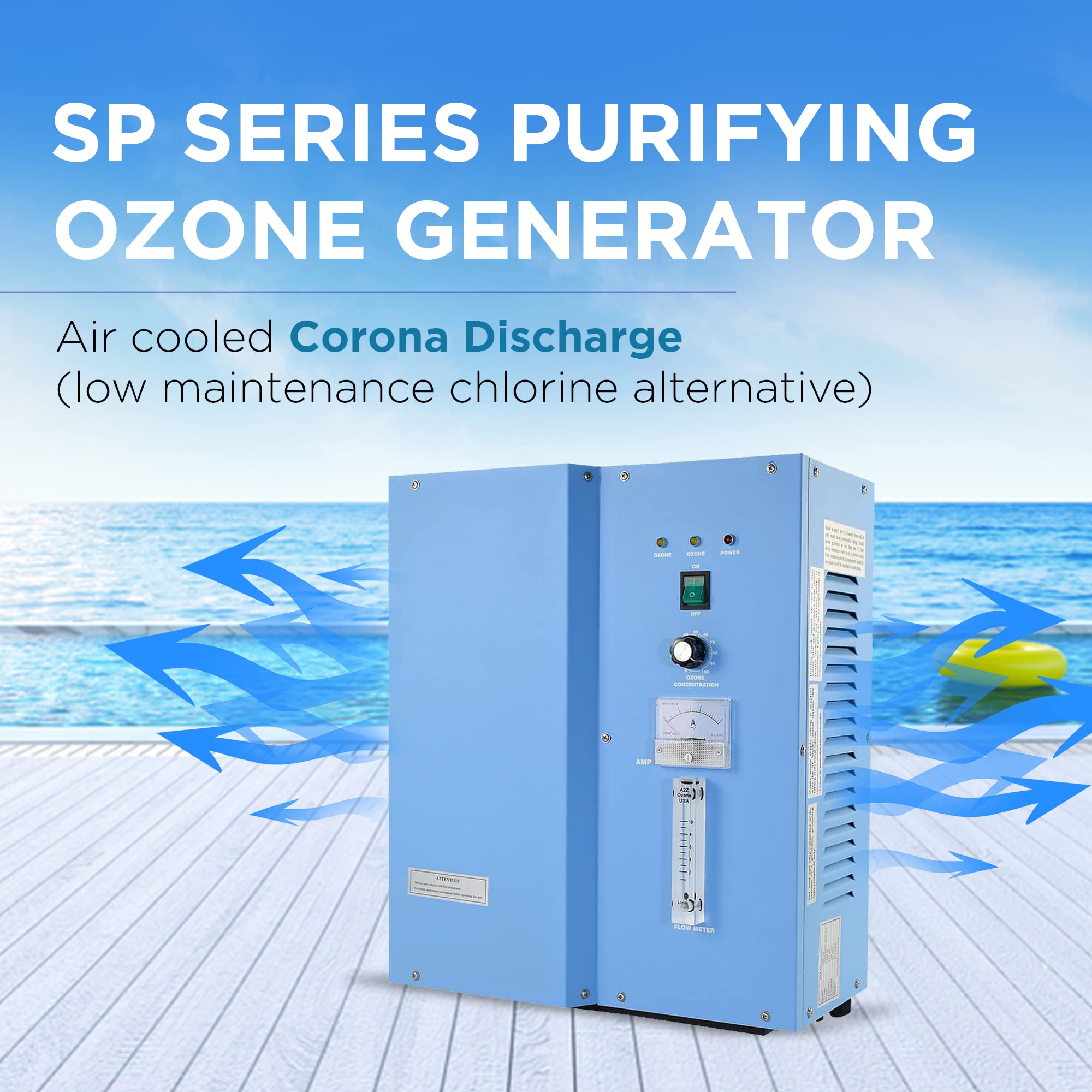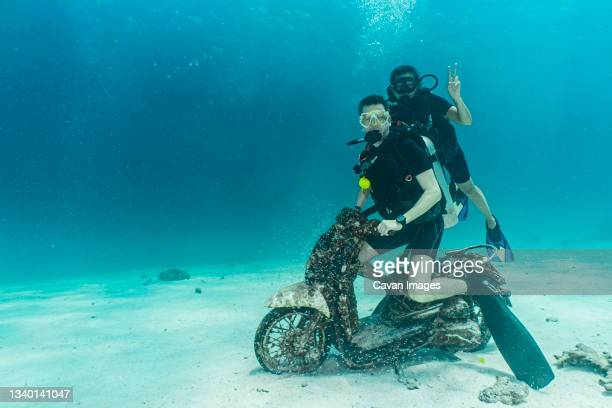
Ozonator For Swimming Pools
An ozonator is an electro-mechanical device that generates and injects ozone gas into swimming pool or spa water.
Ozone is a powerful oxidizer (about 100 times stronger than chlorine!) that also helps break down pool contaminants like grease and oils.
Ozonators are becoming increasingly popular as an alternative to chlorine. They support sanitizer systems and saltwater chlorinators, and provide an effective backup in case your main pool chemical runs out.
Reduces Algae Growth
Using an ozonator for your swimming pool can dramatically reduce algae growth and the need to add chlorine or bromine. However, it does not completely remove all contaminants that might be dangerous to swimmers or their skin and lungs.
Ozone is a form of oxygen that is oxidized and is able to kill bacteria, viruses, and other organic pollutants. It also breaks down byproducts and dead debris that would otherwise build up in the water.
Ozonation is a time-tested, proven, and effective disinfection technology that has been used worldwide for many years. It is one of the most effective sanitizers available and can be injected directly into the pool to disinfect the water.
An ozone generator is an electrochemical device that uses a high-voltage charge to turn oxygen into ozone and then injects it into the pool. This is one of the most safe and efficient ways to disinfect a swimming pool and it will significantly reduce the amount of chlorine or bromine that you have to use.
There are two types of ozone generators: air-fed and gas-cooled. Both types require maintenance every few years.
In addition, ozone needs to be well-contained to ensure that it does not enter the water. This is why the ozonator generator is located far down the pool filtration system.
Moreover, ozone has a short half life and can’t be stored for long periods of time. So, it only works when you have a high enough dose to fully disinfect the water.
This is why it can take a few days to totally ozonate a pool. Even after it is done, the pool still requires additional sanitizer to maintain proper sanitation.
The ozone that is produced by the ozonator can be regenerated in a salt chlorine generator, which provides a much more cost-effective way to sanitize your pool without the need for a large volume of chlorine or bromine. In addition, a salt chlorine generator will eliminate the need to replace zeolite in the filter tank.
Reduces Odors
An ozonator for swimming pool reduces odors by generating ozone that kills bacteria, viruses, and protozoa in the water. This will help to prevent swimmers from getting sick and will make the water in your pool crystal clear.
Ozonators are a popular alternative to traditional chlorine and bromine treatments for sanitizing pools. They are a smaller, easier to use, and more reliable option than other means of pool sanitation. They also work well with saltwater systems.
Ozone is a natural, environmentally friendly oxidizer that kills bacteria, algae, and viruses in the pool ozonator for swimming pool water. It is also great at removing unpleasant odors and certain dissolved metals in the water.
Odors can be caused by a variety of factors, including poor pH levels, bacterial growth, or high levels of chlorine. Ozone can reduce odors by destroying these odor-causing bacteria and by removing the chlorine.
Chlorine is a common sanitizer for swimming pools, but it can also build up in the pipes. This is why it is important to maintain a good balance of both chlorine and ozone in your pool.
When free chlorine is used up, it breaks down into mixed chlorine (chloramines) which can be harmful to swimmers. These chloramines are an irritant to the eyes, nose, throat, and skin and have a very strong chlorine smell.
Ozone is a stronger oxidizer than chlorine, making it a safer option for swimming. It can destroy the harmful oxidants that cause the odors, and it is also much stronger than chlorine in its ability to kill bacteria, algae, and other organisms in the water.
A pool ozone generator works by pumping the ozone into the pool, where it gets broken down into individual oxygen molecules. These are then recombined into highly energized ozone (O3).
The ozone destroys everything that comes in contact with it, making it a more effective pool disinfectant. It can also remove certain dissolved metals in the water and kill unwanted bacteria, algae, and viruses.
The downside to using an ozone generator is that it can be expensive to run and require constant maintenance. This can be problematic for those who only need to run their pool for a few hours each day.
Reduces Chlorine Use
Ozonators for swimming pools are a revolutionary way to reduce chlorine use in your pool. This method is a great way to save money on your chemical bills, and it also leaves your water smelling clean.
Ozone is a powerful disinfectant that oxidizes bacteria and algae to kill them and eliminate any potential odors they may have. This type of sanitizing system is also good at eliminating viruses, parasites, and fungi that can cause serious health problems.
An ozonator works by using electricity to separate oxygen molecules, which are then ozonator for swimming pool released into your pool water as free-floating ozone. Ozone can then sanitize your pool, and keep it bacteria-free for longer.
Many people choose ozone over traditional sanitizers like chlorine because it’s an environmentally friendly method of cleaning your pool. It also doesn’t irritate the eyes or skin.
ozone is one of the most effective means of sanitizing your pool, and it can be used in both above-ground and inground pools. It’s also a good choice for saltwater pools because it improves the sanitization process and works automatically to maintain safe levels of ozone in your pool.
Aside from killing contaminants, ozone also helps reduce scale buildup in your swimming pool. Scale can cause a variety of issues, including corrosion in your pool’s pump and tiles. It also can affect your filtration system, and lead to higher energy costs.
Another benefit of ozone is that it can help lower the amount of cyanuric acid in your pool, which can contribute to a buildup of calcium and magnesium. High calcium and magnesium levels in your pool can increase the risk of stains and deterioration, and can also lead to corrosion in your equipment.
Ozone can be used in conjunction with a mineral purifier to cut down on chlorine use, and it’s a great supplement when used with an algaecide or clarifier. It will also reduce the total dissolved solids in your pool, which can prevent scale from building up on your equipment and causing costly repairs down the line.
Ozone is a natural product that is harmless to humans and swimming pool equipment, so it’s a good option for both residential and commercial pools. You’ll want to make sure you get an ozone generator that is sized for your pool and has the right capacity to work properly.
Increases Water Clarity
Ozonators are used to sanitize the water in your swimming pool and can increase water clarity by killing germs and other harmful substances. In addition, they are a cost-effective and safe alternative to chlorine.
Typically, ozone generators are installed in the pool’s circulation system downstream from the operating equipment. As the water passes through the ozonator, ozone sanitizes it before returning it to the pool.
Ozone is a blue-colored gas that’s made up of three oxygen atoms. It can be produced through two different generator types: corona discharge and ultraviolet light.
In both generator types, ozone is generated through high voltage electrical discharges that create a ring of energy. Air flows through this ring, and some of the oxygen molecules split apart. They then reassemble to form ozone.
Once ozone is created, it’s injected into your pool’s water with the help of a venturi injection. This allows it to penetrate through the water’s filtration system, as well as into the ozone generator itself.
Unlike chlorine, ozone does not leave a residual disinfectant that helps prevent germs from spreading in the water. That’s why it’s important to add another chemical, like bromine or chlorine, after ozone is added to your swimming pool.
This will give swimmers the safety they need while allowing them to enjoy the pool and its contents. It also reduces the amount of chemicals used and costs associated with purchasing, handling and storing them.
Ozone also kills bacteria, including the ones that are resistant to traditional disinfection agents. It also removes unpleasant chlorine and chloramines odors, making it healthier for swimmers to breathe. It can even eliminate red, itchy eyes caused by chlorine or chloramines.
However, ozone has a short half life, so it needs to be regenerated and inserted into your water within a few minutes after being created. This can be a hassle for homeowners, so some people choose to use chlorine or salt water chlorinators as a backup sanitizer when their ozone system is off.
Despite its great potential, ozonators aren’t the best choice for every pool owner. They may be good for commercial pools that have many visitors and don’t need to maintain an incredibly high level of water sanitation.


